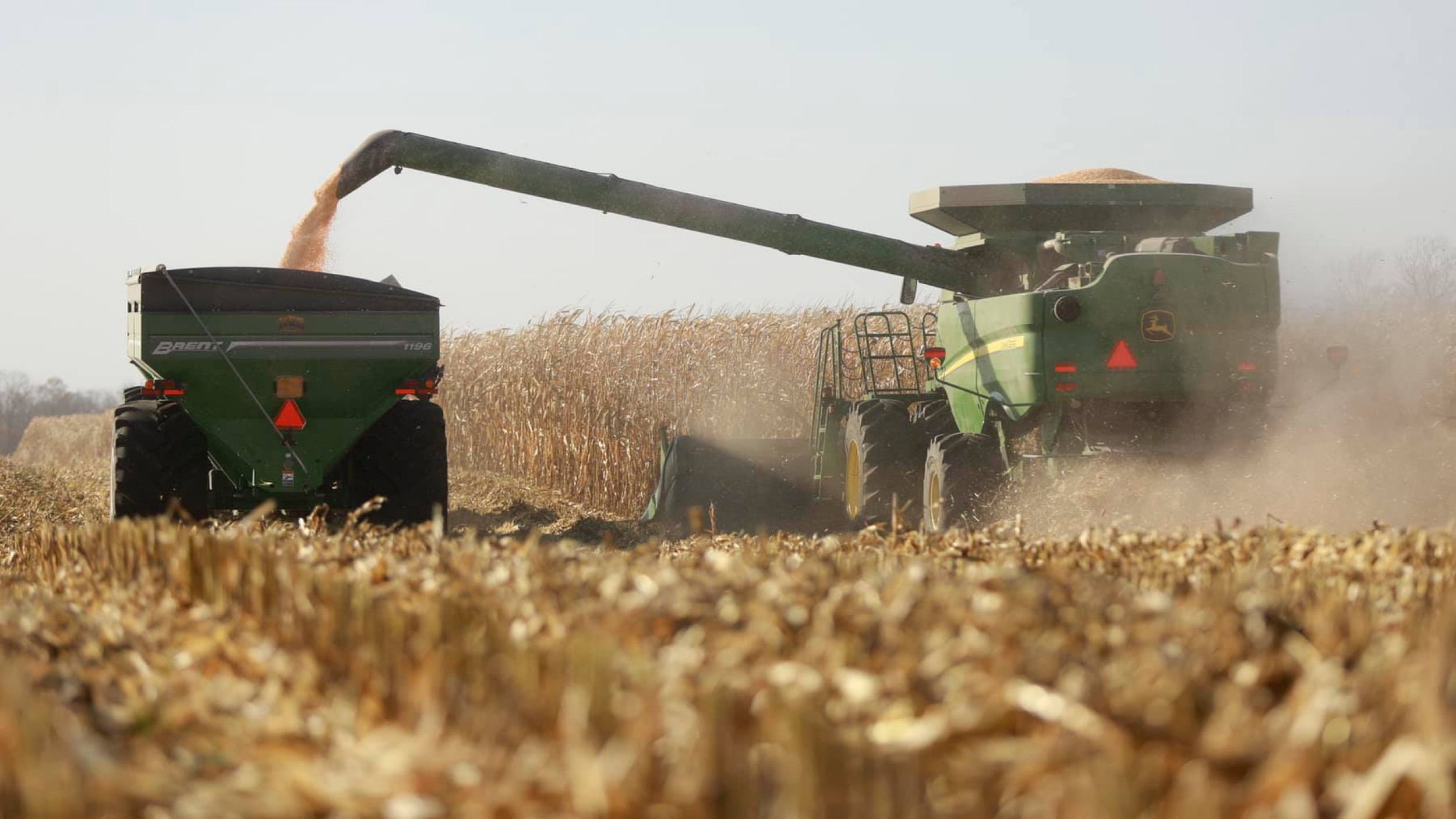
There is no fast pass to generating wealth in farming and farmland ownership. Weather, commodity markets, and other factors from the long list of variables can ensure that there will be good years and bad years. But farmers are the ultimate optimists and hope to come out ahead in the long run.
Landowners have several options when it comes to leasing their land, with the most active engagement being investing in equipment and farming themselves while the most passive engagement is cash renting it to a local farmer. In the middle lies the opportunity to partner with a neighboring farmer to take responsibility for a portion of bushels harvested in a crop share arrangement or receive 100% of the bushels harvested with a custom farming arrangement. Taking an interest in the crop certainly looks more appealing in times of high commodity prices and the opportunity for high returns exists, but it doesn’t come without risk.
In a custom farming arrangement, a local operator is contracted to perform the labor and provide equipment for planting, spraying, and harvesting the crop. The landowner handles everything else such as selecting inputs, financing the crop, and selling the grain. Custom farming is best suited for landowners who are looking to maximize revenue on their farm and aren’t afraid to take on the risk of owning a crop.
While custom farming holds many advantages, it also has its share of disadvantages. Unlike cash rent where income is fixed, custom farming income varies from year to year based on the crop grown, the yield produced, and the price the grain can be sold for. This allows for significant upside opportunities, but also exposes the Landowner to commodity volatility and downside risk. Below is a simple breakdown of the most prevalent pros and cons of custom farming:
| Advantages |
Disadvantages |
| Participation in high commodity prices |
Capital intensive entry point |
| Direct control over fertility & farming practices |
Variable income based off yield and price |
| Depreciation and expenses against income |
High risk compared to alternative arrangements |
| Access to Government Programs |
Subject to drought, weather, & market volatility |
| Revenue floor set by Federal Crop Insurance |
Access to Custom Operators |
| Lower overhead compared to Direct Operation |
|
Many of the custom farming advantages relate to increased income, and many of the disadvantages relate to increased risk. As we move through a period of high commodity prices paired with high input costs, landowners should decide if the risk associated with custom farming is worth the reward.
Below is an example using a 160-acre farm split 50/50 between corn and soybeans. For illustrative purposes, the farm is assumed to have an 85 CSR2 value and harvest yields of 220 bushels/acre for corn and 62 bushels/acre for soybeans. An average sales price of $5.75/bu. for corn and a $13.85/bu. soybean price will be used. A farm with these characteristics would likely cash rent for $325-$375/acre, and for the purpose of this example, a $350/acre cash rent is used for all 160 acres, assuming 100% tillable.

The above chart shows custom farming holds a significant income advantage as compared to cash rent. It also carries significantly more risk from factors such as drought, hail, low commodity prices, and rising input costs. A revenue floor can be set by utilizing Multi-Peril Crop Insurance and depending on insurance prices and yield, a profit or close to can typically be guaranteed. The chart above uses 2022 insurance prices, 80% coverage for each crop, and a 185bu/ac corn yield and 53bu/ac soybean yield.
Input prices continue to rise with higher commodity prices, but over the last three years there has been a substantial income difference between cash rent and custom farming, with crop ownership favored as a source of higher revenue.
Peoples Company Land Managers are well versed in assisting landowners to choose the right fit for their farm. We are available to create farm plans specific to any farm setup or situation. Please call 855.800.5263 or email LandManagement@PeoplesCompany.com if you’re interested in learning more about custom farming or ways Peoples Company can help manage your farmland for sustainability and appreciation.








